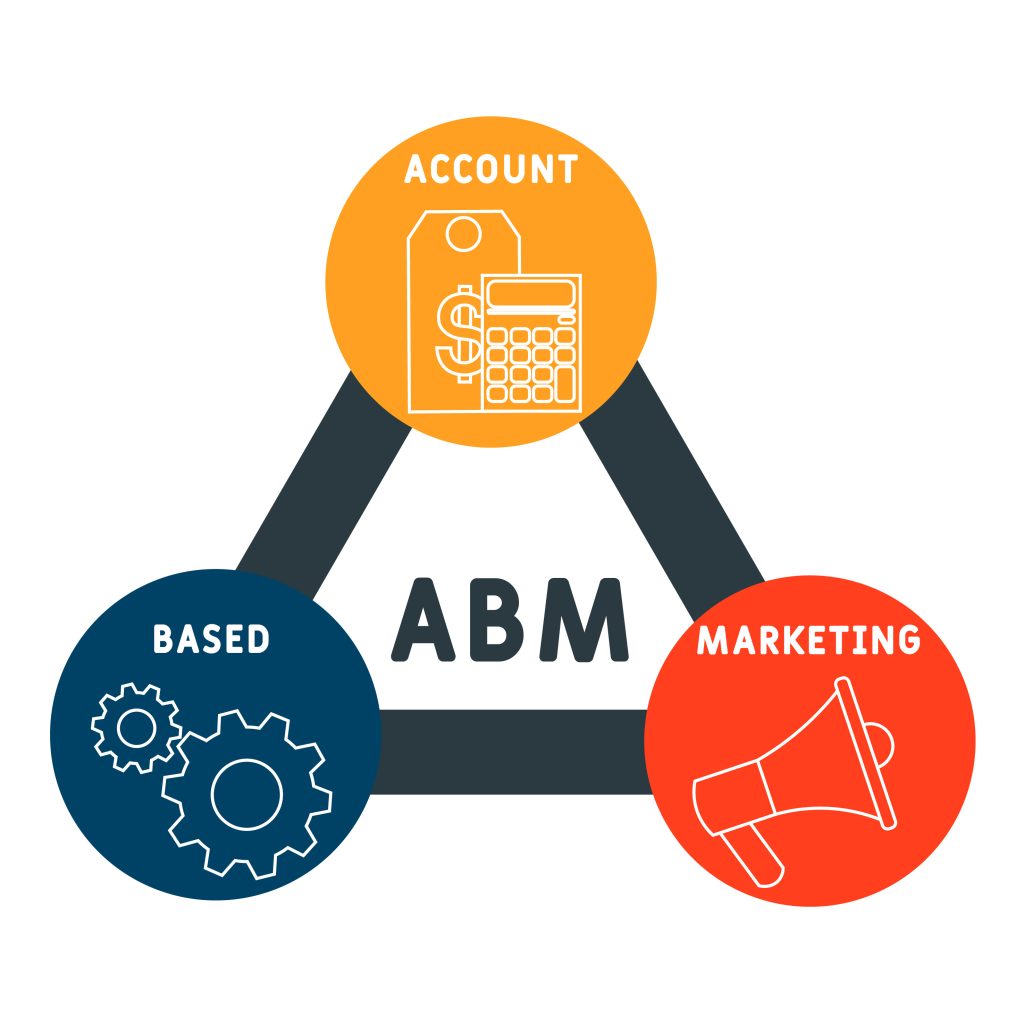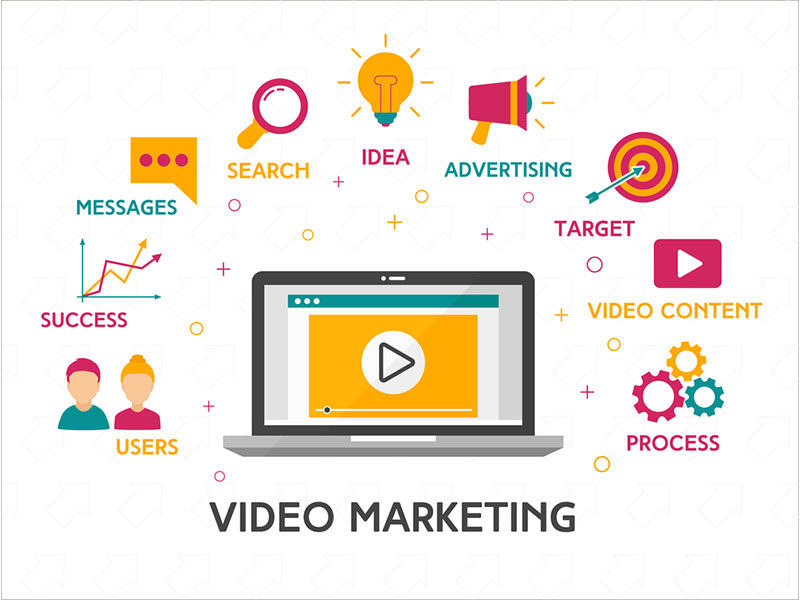In today’s competitive business environment, B2B marketing strategies are essential for companies to build and sustain relationships with other businesses. Unlike B2C, where the focus is on individual customers, B2B marketing involves targeting decision-makers and stakeholders within companies. This article explores the most effective B2B marketing strategies and how businesses can leverage them to drive growth and increase market share.
We’ll cover key tactics such as account-based marketing, content marketing, social media for B2B, and more. We’ll also explore emerging trends and practical tips that you can implement to stay ahead of your competition.
Account-Based Marketing (ABM): A Targeted Approach
What is Account-Based Marketing?
Account-Based Marketing (ABM) is a strategic approach where a company treats each prospect or customer as a unique “market.” Instead of casting a wide net, businesses focus on key accounts that are most likely to convert. ABM helps to foster deep, personalized relationships, and is highly effective in the B2B space.

Benefits of ABM in B2B Marketing
- Personalization: Tailoring your marketing efforts to each company ensures more relevance.
- Improved ROI: Focused resources lead to higher returns on investment.
- Enhanced Sales Alignment: ABM requires close collaboration between sales and marketing teams.
Implementing ABM
- Identify key accounts: Use data and insights to select high-value targets.
- Develop personalized campaigns: Tailor your messaging to address each company’s unique challenges.
- Measure performance: Track engagement and conversions to fine-tune your efforts.
Content Marketing for B2B: Driving Engagement Through Value
The Importance of Quality Content in B2B
Content marketing is crucial for educating your audience and building trust. In B2B, businesses seek to make informed decisions, so your content should provide actionable insights and solve their problems.

Types of B2B Content
- Whitepapers: These in-depth reports can position your business as a thought leader.
- Case Studies: Showcase your past success to potential clients.
- Blog Posts: Keep your audience informed with regular updates and industry news.
- Webinars: Offer real-time value and engage directly with your audience.
Content Marketing Best Practices
- Understand your audience: Tailor your content to address the pain points of specific businesses or industries.
- Create SEO-optimized content: Ensure your content ranks well in search results by using relevant keywords and phrases.
- Use multi-channel promotion: Distribute content across email, social media, and your website to maximize reach.
Leveraging Social Media for B2B Success
Social Media’s Role in B2B
Although often associated with B2C, social media platforms are increasingly valuable in B2B marketing. Platforms like LinkedIn, Twitter, and even Facebook allow businesses to network, build brand awareness, and engage with potential clients.

Key Social Media Platforms for B2B
- LinkedIn: The go-to platform for B2B, offering targeting tools for professionals and businesses.
- Twitter: Great for thought leadership and participating in industry conversations.
- YouTube: Perfect for sharing educational content like tutorials or product demonstrations.
Best Practices for B2B Social Media Marketing
- Build a content calendar: Consistency is key when posting to social media.
- Engage with your audience: Respond to comments and participate in conversations within your industry.
- Leverage paid advertising: Platforms like LinkedIn offer robust targeting options for reaching decision-makers.
The Power of Email Marketing in B2B
Why Email Marketing Still Works
Despite the rise of new digital channels, email remains one of the most effective ways to reach B2B audiences. It allows businesses to communicate directly with decision-makers, share valuable content, and nurture leads over time.

Types of B2B Email Campaigns
- Newsletters: Keep your audience informed with regular updates about your business and industry.
- Lead Nurturing Campaigns: Automatically send targeted content based on where leads are in the sales funnel.
- Event Invitations: Promote upcoming webinars, conferences, or product launches.
Best Practices for B2B Email Marketing
- Personalize your emails: Use the recipient’s name and tailor the content to their interests.
- Optimize for mobile: Ensure your emails are easy to read on smartphones and tablets.
- Segment your audience: Divide your email list into different segments based on demographics or behavior for more targeted campaigns.
Future Trends in B2B Marketing
AI and Automation
Artificial intelligence and automation tools are transforming how B2B marketers interact with prospects. From chatbots that handle customer inquiries to automated email workflows, these tools increase efficiency and enable personalized engagement at scale.

Video Marketing
Videos are becoming an essential part of B2B marketing strategies. Companies are using explainer videos, product demos, and customer testimonials to convey their message in a more engaging way.

Data-Driven Marketing
The rise of big data allows B2B marketers to make more informed decisions. Analyzing customer behavior and market trends enables businesses to craft more effective campaigns.
Conclusion
In summary, B2B marketing strategies are vital for driving business success. From account-based marketing and content marketing to social media and email campaigns, each tactic plays a significant role in reaching and converting other businesses. As technology advances, new tools like AI and video marketing will become even more critical for staying competitive in the B2B space.
By adopting these strategies and staying informed on emerging trends, businesses can build stronger relationships with clients, drive more leads, and ultimately increase revenue.
FAQs
Q1. What is the most effective B2B marketing strategy?
The most effective strategy varies by industry but commonly includes account-based marketing, content marketing, and email campaigns.
Q2. How does ABM benefit B2B companies?
ABM allows B2B companies to focus on high-value accounts, leading to more personalized marketing efforts and higher ROI.
Q3. Why is content marketing important for B2B?
Content marketing educates potential clients, helping businesses build trust and position themselves as industry leaders.
Q4. Can social media work for B2B marketing?
Yes, platforms like LinkedIn and Twitter are effective for building relationships and promoting B2B content.
Q5. What future trends should B2B marketers watch?
Key trends include AI and automation, video marketing, and data-driven marketing.








